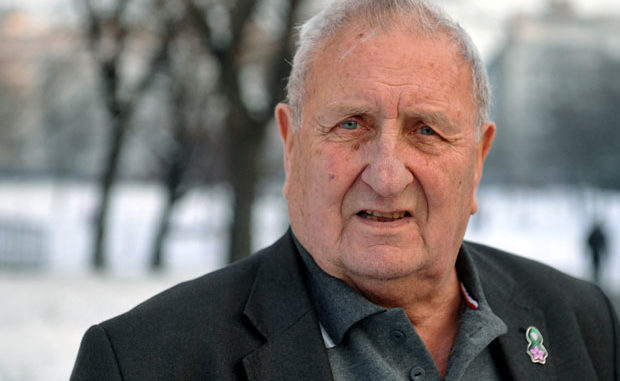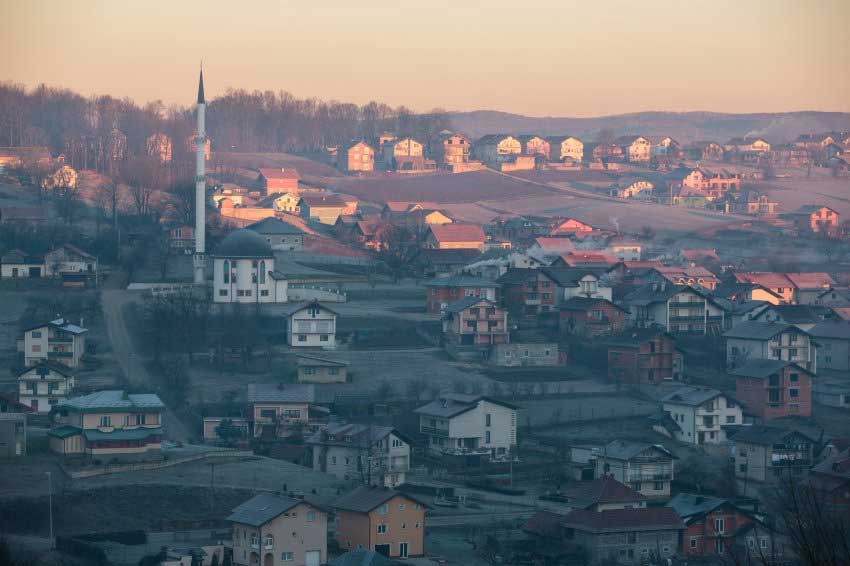
Who was asked to provide lists [of those killed] for Auschwitz and dozens of other concentration camps? This mad idea is not present in Europe, but only in the area of the former Independent State of Croatia /NDH/ among descendents of the former masters of the Jasenovac Concentration Camp, says the director of the Belgrade-based Institute for Research on the Sufferings of the Serbs, Milivoje Ivanisevic, in an interview with SRNA’s Vesna Surbat.
The director of the Belgrade-based Institute for Research on the Sufferings of the Serbs, Milivoje Ivanisevic, warns that some have been trying for decades to cover up the genocide committed in the Independent State of Croatia /NDH/ and the Jasenovac Concentration Camp, and that the most often objection is that the names of those killed are not known.
“Millions of people were killed in numerous concentration camps throughout Europe. Who was asked to provide lists [of those killed] for Auschwitz and dozens of other concentration camps? This mad idea is not present in Europe, but only in the area of the former Independent State of Croatia /NDH/ among descendents of the former masters of the Jasenovac Concentration Camp,” Ivanisevic said in an interview with SRNA.
As an example of the relativisation of genocide, Ivanisevic cites the explanation for forming an Information-Documentation Centre in Sarajevo /which was not put on the Internet site of this Centre/ that Jasenovac “is a dangerous example of exploitation of victims” and that “the Serbian regime used numbers which have never been clearly and precisely determined and backed by the names of the victims.”
Ivanisevic claims that the silent post-war boycott by the Croatian, Muslim and (partially) by the Yugoslav leadership has been presented for decades at all, particularly international, events in connection with Jasenovac.
“Maybe they have become aware of the fact that Turkey, almost 100 years after the genocide of the Armenians, was accused by the world public of genocide. Why could this not happen in the near future to those responsible for genocide against Serbs in BiH and Croatia?” Ivanisevic asks.
After WWII, Ivanisevic says, the Croatian Communists and the authorities persistently tried to cover up or at least diminish the Ustashe crimes, and state and scientific institutions and certain researchers in Croatia spoke, without a sense of moral responsibility, of Jasenovac as a meaningless episode of WWII.
“Today, they even behave with sense of disrespect in this matter. Were it possible, they would deny the very existence of this concentration camp. And they might have managed it had the inmates been only Serbs,” Ivanisevic said.
Ivanisevic notes that the Croatian Communists and later the Croatian authorities tried to reduce the scope and character of the crime in order to protect their state and people from accusations of genocide.
“This is characteristic of the positions and behaviour of all important Croats, starting from Josip Broz Tito and Miroslav Krleza, and so on down the line. This is the explanation why this torture and killing ground for hundreds of thousands of people, overwhelmingly Serbs, has never been fully affirmed internationally, as other concentration camps in Europe have,” Ivanisevic feels.
He warns that other killing grounds for Serbs in the NDH were also forgotten or intentionally covered up, and that “the trouble is that these killing grounds are in states whose majority nation is the one most responsible for the killings of Serbs.”
Ivanisevic says that according to the Austro-Hungarian population census of 1910, there were 214,000 Orthodox more than Muslims in Bosnia and Herzegovina, and at the end of the 20th century, the 1991 population census showed that there were 535,000 Muslims more than Serbs.
“It is known that at the beginning of the 20th century, Serbs comprised more than one-third of the population of Croatia, and according to the latest population census, there were only 4.6% of Serbs in Croatia. For every impartial man, this is proof enough of genocide and of which nation was the victim of genocide,” Ivanisevic said.
He said that the Kingdom of Serbia in WWI lost 1,247,435 people, which is 28% of its population, and in WWII, 1,607,000 Serbs were killed or 16.25% of Serbs in the then Yugoslavia.
In the same war, the English lost 0.8% of their population, the Italians 0.9%, the French 1.4%, the Germans 6.1%, and the Soviets between 8.8% and 12.9%.



